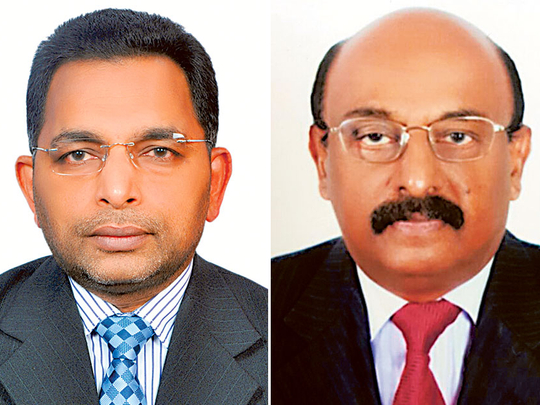
Abu Dhabi: The Indian Social and Cultural Centre (ISC) in Abu Dhabi is exploring all options to facilitate establishing a non-profit sharing community school to address the acute shortage of seats in Indian curriculum schools in the capital.
“We receive around 20 Indian parents daily who seek help to get school admissions for their children,” the newly elected leaders of ISC told Gulf News.
“This is the most important issue affecting the Indian community in the capital. As the premier socio-cultural organisation, we would like to take the lead role to solve this issue,” said Ramesh Panicker, honorary president of ISC.
M.A. Salam, honorary general secretary of ISC, said the centre has constituted a four-member-committee to study the legal options of the non-profit sharing school and the centre’s possible involvement in the project.
As local regulations do not permit a socio-cultural organisation to run a school, the committee will explore the options to facilitate the school project.
“We will see whether all Indian social and cultural organisations in the capital can come together to form a legal entity like a trust that can run the school. As the project needs huge funds, ISC alone cannot do it. But we will take the initiative for this cause,” Panicker said.
The elected leaders of the ISC in 2013 had made an attempt to establish a kindergarten that can be upgraded gradually to solve the school seat shortage. “The issue still persists and we take forward those efforts with the help of the Indian Embassy and other community organisations,” Panicker said.
Finding seats at Indian curriculum schools has long been a concern in the capital, especially following the Abu Dhabi Education Council-mandated shutdown of villa schools, which did not meet the authority’s environmental and health standards.
ISC leaders met T.P. Seetharam, the Indian Ambassador to the UAE, to discuss possible solutions to the school seat issue. “He is in touch with the local authorities to find all possible solutions,” Panicker said.
As Gulf News reported last week, Seetharam called on well-meaning entrepreneurs to establish community schools like the Abu Dhabi Indian School that offers high educational standards with reasonable fees. He had earlier said that last year’s dire situation of a huge lack of school seats did not exist any more thanks to the steps taken by the Abu Dhabi Educational Council (Adec), which have resulted in the opening of new Indian schools. But some parents [of the children whose schools were closed] are unable to find schools with ‘affordable fees’. So this year the problem is not the ‘availability’ of seats but ‘affordability’, he said.
The management of a new Indian school announced last week that 2,500 seats will be offered by the end of 2016, but with fees ranging between Dh20,000 and Dh25,000 per child, making the institution one of the highest-charging Indian curriculum schools in Abu Dhabi.
ISC leaders said they will take up the community school project as a top priority. The centre has around 2,200 members but caters to another 5,000 people who are dependants of the members.
The centre was established in 1967 in a small building with four or five rooms. Now it is housed in its Dh35-million five-storey building, considered the biggest Indian recreational club in the Middle East. The new building was inaugurated in 2008. It houses library and reading room with internet facilities, a multi-purpose auditorium equipped with the latest audiovisual system with a seating capacity of 1,500 people, a mini hall with seating for 300 and an art and crafts hall with 200 seats, family room with a children’s play area, and a multi-cuisine, five-star family restaurant.












